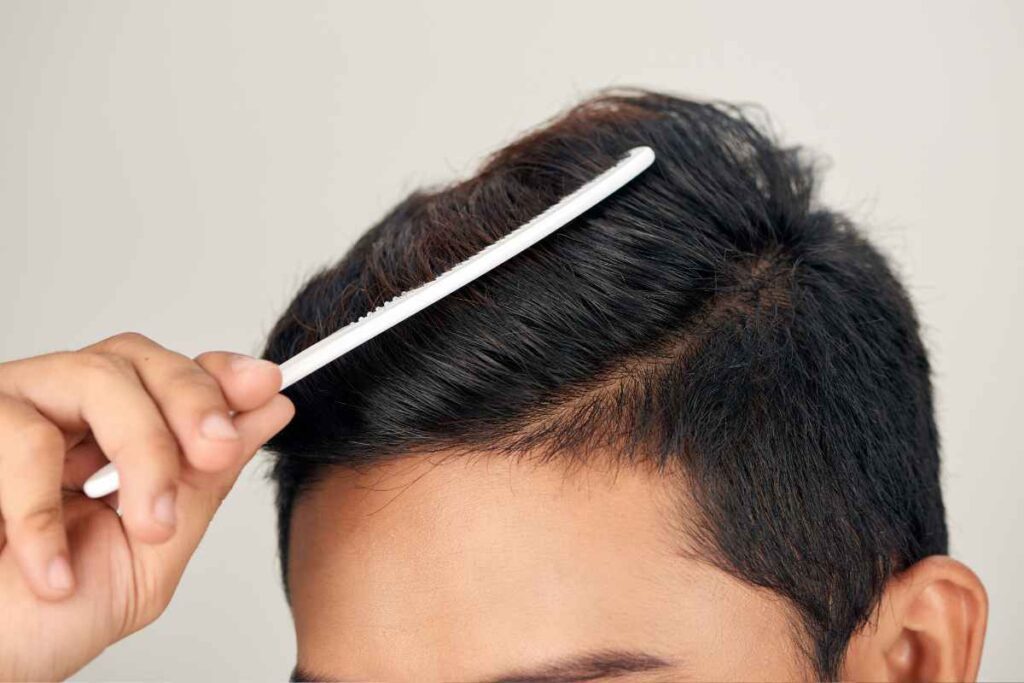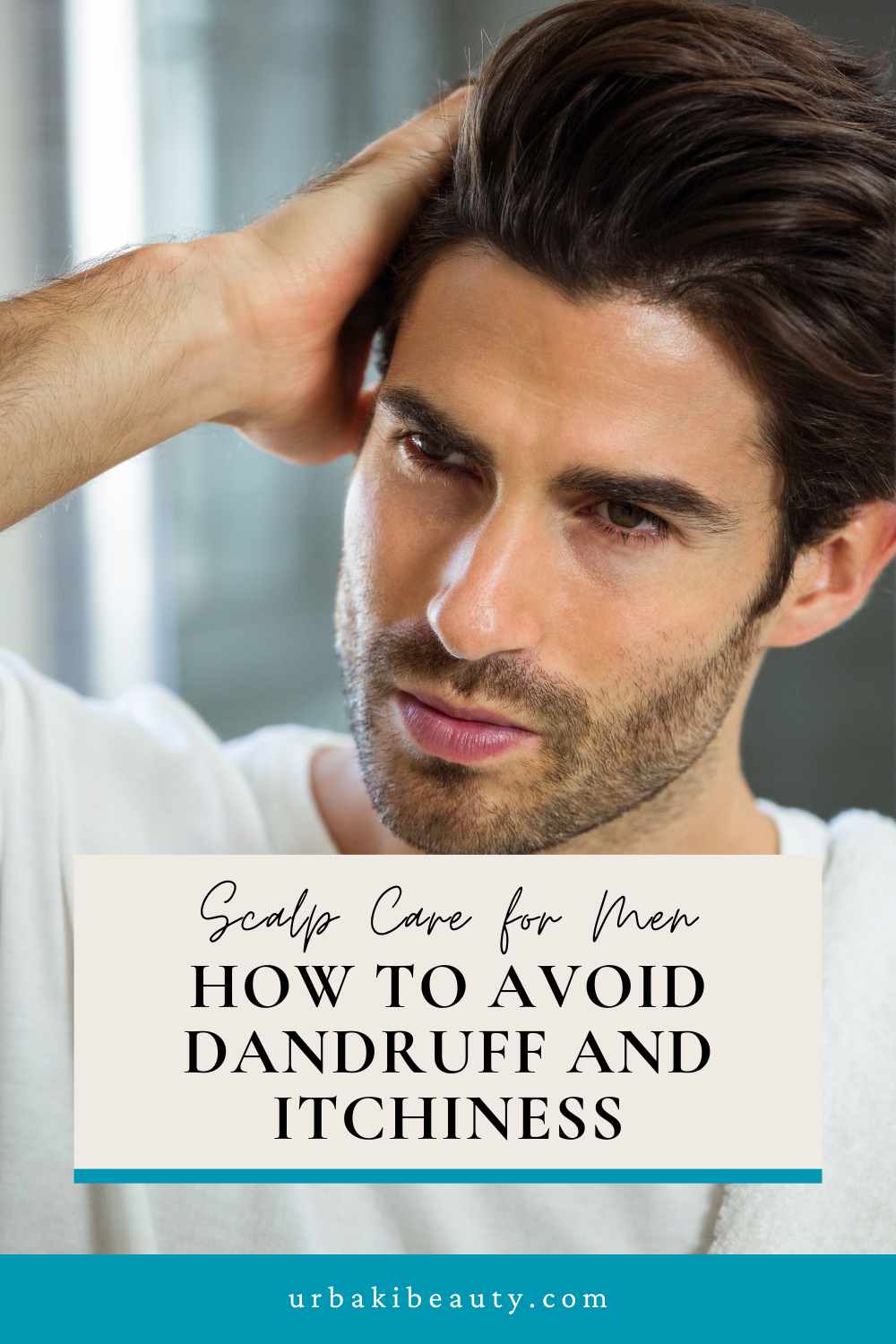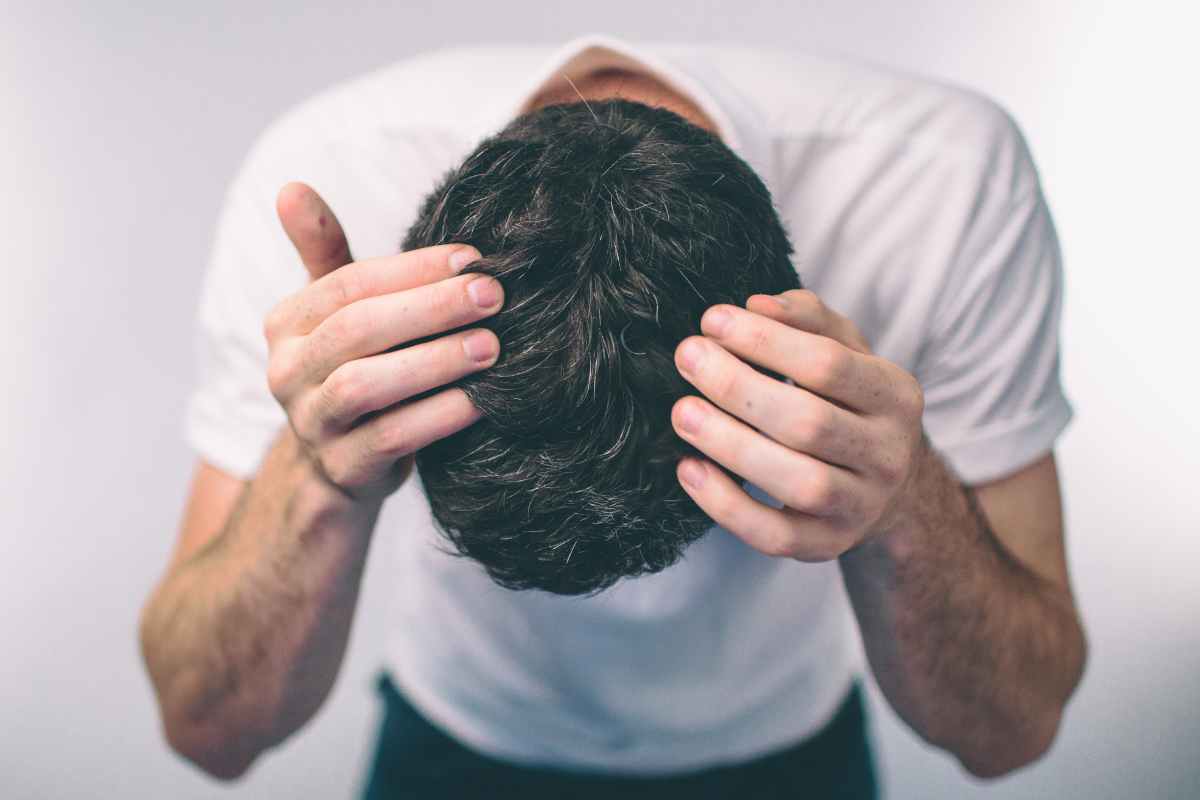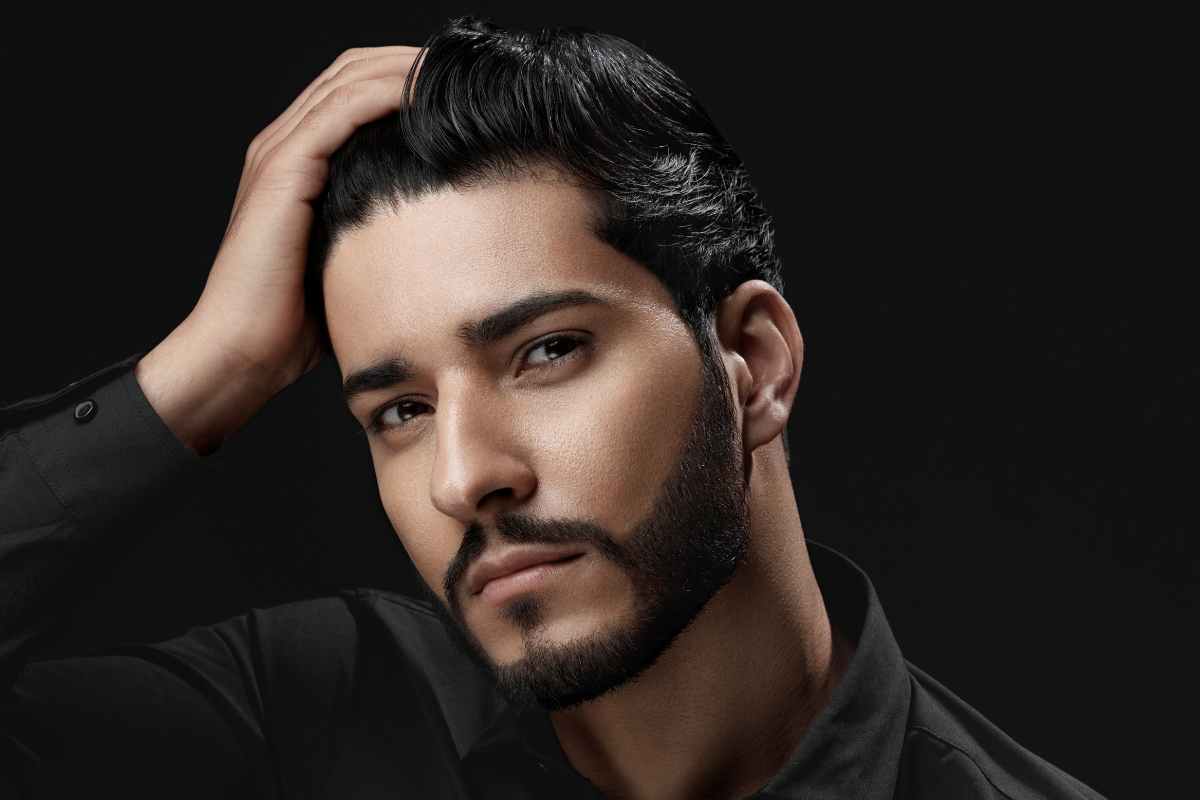Scalp Care for Men: How to Avoid Dandruff and Itchiness

Scalp care is an essential part of overall grooming, but it's often overlooked. Many men suffer from dandruff, itchiness, or dryness without understanding how to prevent or treat these issues.
Whether you’re experiencing flakes, irritation, or simply want to ensure your scalp is healthy, proper care can make all the difference.
In this article, we’ll explore the causes of dandruff and itchiness, and share tips on how to effectively care for your scalp to keep it clean, hydrated, and flake-free.
Understanding the Causes of Dandruff and Itchiness
Before diving into treatments and remedies, it’s important to first understand what causes dandruff and itchiness on the scalp.
Dandruff is a common scalp condition characterized by the shedding of dead skin cells, often accompanied by irritation and itching. It can be embarrassing, but it’s usually harmless and treatable.
There are several factors that contribute to dandruff and scalp itchiness:
Dry Skin
Dry skin is one of the most common causes of scalp itchiness and dandruff. When your skin lacks moisture, it can become flaky, leading to visible white flakes in your hair. The dryness can also make your scalp feel tight and itchy.
Oily Skin and Seborrheic Dermatitis
On the flip side, oily skin can also contribute to dandruff. Seborrheic dermatitis, a common condition linked to excessive oil production, leads to inflammation, redness, and flakes.
The overproduction of oil creates an ideal environment for the yeast-like fungus Malassezia, which can aggravate the scalp and cause dandruff.
Improper Hair Care Products
Using the wrong hair care products can also lead to scalp irritation. Harsh shampoos or conditioners that are too strong can strip the scalp of its natural oils, causing dryness and flaking.
Alternatively, products that leave behind a heavy residue can contribute to clogged hair follicles, leading to itchiness.
Allergies
Scalp itchiness can also be triggered by allergic reactions to certain ingredients in hair care products. If you notice redness, swelling, or increased irritation after using a new shampoo or conditioner, an allergy may be the cause.
Poor Hygiene
Infrequent washing or buildup of product residue can lead to dandruff and itchiness. If oil, dirt, and styling products accumulate on the scalp, it can cause clogged pores, irritation, and dryness, which may exacerbate dandruff.
Effective Scalp Care Tips for Men
Now that we understand the causes of dandruff and itchiness, let’s dive into effective solutions for treating and preventing these issues.
Taking care of your scalp doesn’t have to be complicated, but consistency and proper products are key to achieving a healthy scalp and hair.
Choose the Right Shampoo
The first step in improving scalp health is selecting the right shampoo. If you're prone to dandruff, anti-dandruff shampoos can be highly effective. Look for products that contain active ingredients such as:
Zinc pyrithione: An antifungal agent that helps control the overgrowth of Malassezia, the fungus linked to dandruff.
Ketoconazole: Another antifungal ingredient that is effective in treating scalp fungus.
Salicylic acid: Helps exfoliate the scalp and remove flakes, preventing buildup.
Coal tar: Used to slow down the rate of skin cell turnover, preventing flakes.
Tea tree oil: Known for its antimicrobial properties, it helps soothe the scalp and fight dandruff.
Be mindful of the shampoo you choose, especially if you have dry skin. Some anti-dandruff shampoos can be too harsh and may dry out the scalp further.
For men with dry skin, opting for a moisturizing shampoo with hydrating ingredients like aloe vera or glycerin is a better choice.
Exfoliate Your Scalp
Just like your face, your scalp can benefit from exfoliation. Gentle exfoliation helps remove dead skin cells and prevent buildup. There are exfoliating scalp scrubs available that are designed to slough off excess skin and product buildup without irritating the scalp.
You can also make your own scrub by mixing baking soda with a bit of water to form a paste. Apply it gently to the scalp in circular motions, focusing on areas that are particularly flaky or itchy. Afterward, rinse thoroughly and follow with a moisturizing shampoo.
Avoid Over-Washing
Washing your hair too frequently can strip your scalp of its natural oils, leading to dryness. On the other hand, not washing your hair often enough can allow dirt, oil, and buildup to accumulate, causing irritation and dandruff.
Washing your hair every two to three days is usually a good balance for most men. If you have an oily scalp, you may need to wash more frequently, but for dry or sensitive scalps, less frequent washing is better.
Use a Conditioner
A good conditioner is crucial for maintaining a healthy scalp. After shampooing, apply conditioner to the hair shafts and the scalp to help lock in moisture.
Conditioners with ingredients like argan oil, coconut oil, and shea butter can help nourish and hydrate the scalp, reducing the likelihood of dryness and flakes.
If your scalp is prone to oiliness, opt for a lightweight, oil-free conditioner that won't weigh down your hair. This will help balance the scalp’s natural oils without contributing to buildup or greasiness.
Massage Your Scalp
Regular scalp massages can stimulate blood circulation to the hair follicles, promoting healthy hair growth and improving scalp health.
Use your fingertips to gently massage the scalp for a few minutes while shampooing or conditioning. This can also help to relieve any tension in the scalp and reduce the feeling of itchiness.
Massaging the scalp regularly can also distribute natural oils more evenly, preventing dryness in certain areas. It’s a simple practice that can improve both your scalp and overall hair health.
Avoid Heat Styling and Tight Hairstyles
Excessive heat styling or pulling your hair back into tight hairstyles can contribute to scalp irritation and dryness. Hair dryers, straighteners, and curling irons can strip the hair of moisture, leading to a dry scalp.
Tight hairstyles like man buns or ponytails can also irritate the scalp, causing itchiness and discomfort.
If possible, allow your hair to air dry or use heat styling tools on a low heat setting. Choose looser hairstyles that don’t put unnecessary pressure on your scalp.
Maintain a Healthy Diet
A balanced diet plays a crucial role in maintaining healthy skin, including your scalp. Vitamins and minerals, particularly those rich in omega-3 fatty acids, vitamin E, and zinc, can support healthy scalp function and reduce inflammation.
Foods like salmon, walnuts, spinach, and avocados are excellent choices for promoting scalp health. Drinking plenty of water throughout the day is also essential for keeping the scalp hydrated.
Manage Stress
Stress is often linked to various skin conditions, including scalp issues like dandruff and itchiness. Stress can trigger or worsen seborrheic dermatitis, leading to increased flakiness and itching.
Practice stress management techniques such as yoga, deep breathing, or even taking time for regular exercise. Taking care of your mental health can have a positive impact on your scalp and hair.
Consult a Dermatologist if Needed
If you’ve tried multiple remedies and still struggle with dandruff, itchiness, or other scalp issues, it may be time to consult a dermatologist.
They can diagnose underlying conditions like seborrheic dermatitis, psoriasis, or eczema, which may require specialized treatment.
A dermatologist can recommend medicated shampoos, topical treatments, or even prescription products to help manage chronic scalp conditions.
Conclusion: Achieving a Healthy Scalp
Caring for your scalp is just as important as caring for your hair. By adopting a consistent scalp care routine, using the right products, and making a few lifestyle changes, you can avoid dandruff and itchiness, promoting a healthier, more comfortable scalp.
Remember, hydration, proper cleansing, and moisturizing are key to preventing common scalp issues. With the right attention and care, you can keep your scalp in excellent condition, ultimately improving the health and appearance of your hair.
So, take charge of your scalp care and enjoy a flake-free, healthy scalp all year long!
Did you find this post useful or inspiring? Save THIS PIN to your Beauty Board on Pinterest! 😊






You may also like